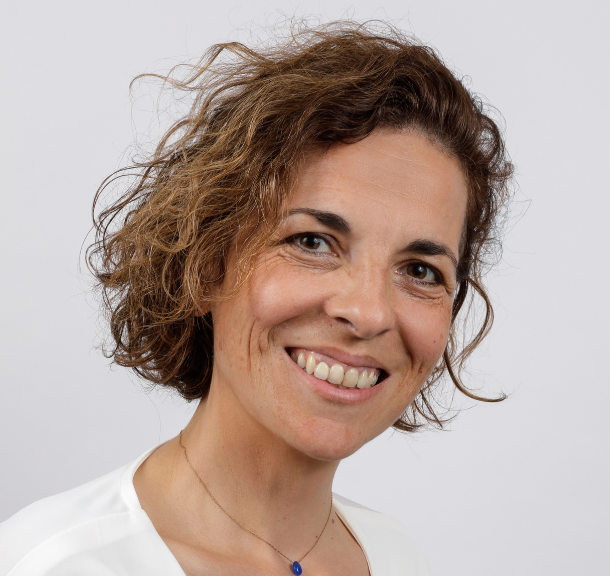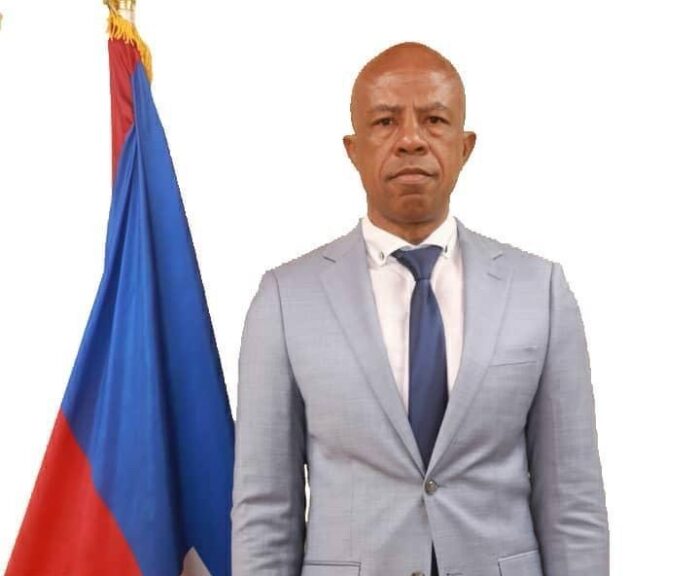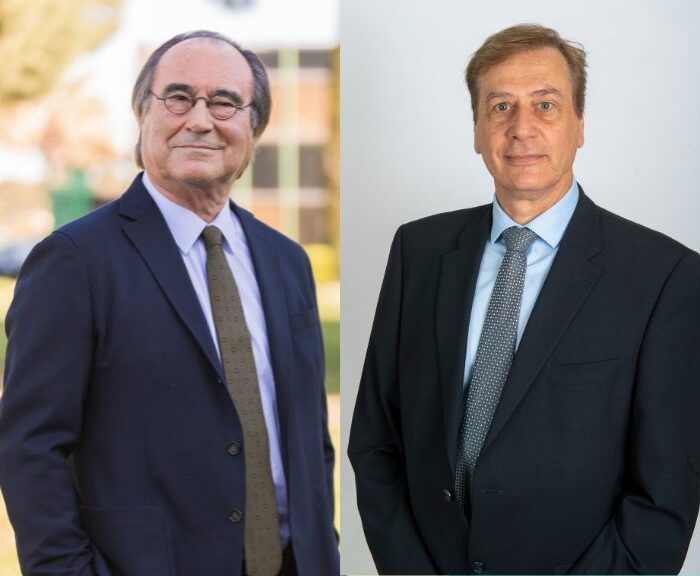AIVP – question 1 : Can you tell us how the “Dockville” project came about? What inspired you to focus on the commercial port of Sete?
I’ve been making documentary films for years, both in the field of television and contemporary art, through residencies and partnerships with cultural institutions. I’m generally interested in worlds that aren’t my own, with the desire to get to know them, understand them and convey an embodied, faithful account of them. Making a film therefore requires time and a form of immersion to succeed in conveying the complexity of reality. I particularly like stories linked to the world of work, popular culture and questions of transmission. I’m often interested in things that seem geographically or culturally close, but which paradoxically remain little-known. I lived in Marseille for several years and was always drawn to the autonomous port, which is both part of the city and its identity, but at the same time somewhat cut off from it because it has become inaccessible to its inhabitants (like all ports today, for security reasons). Life then took me to other parts of the world, and when I moved to Montpellier two years ago, I found myself once again facing the silhouette of cranes silhouetted against the landscape. I was standing in front of the commercial port of Sete and could see the signs of activity and a diversity of traffic. My curiosity and desire to find out more about this port world were immediately rekindled. The configuration of the port of Sète is particularly interesting: it is fundamentally linked to the history of the city and populates its imagination, but the link is no longer as fusional as it was in the 60s. A certain distance and unfamiliarity with port life are now shared by many inhabitants, who even believe, sometimes mistakenly, that activity is in decline. The scale of this port is also interesting: a “big little port” as the crane operators call it, i.e. an extensive (over 200 hectares) and diversified territory, which you can’t get around on foot, but where everyone knows each other and rubs shoulders
AIVP – question 2 : Dockville focuses on a variety of port situations and trades. Can you tell us about some of the stories or people who have made a particular impression on you?
After scouting the port for several months without a camera, in order to grasp the singularity of this ecosystem before starting to film it, I realized that it was above all a collective story, not a succession of individuals working in the same space. Although plural and heterogeneous, this port community gradually became clear to me. More than individual stories and experiences, what struck me most was the clear sense of belonging that translates into a rhythm of life, the transmission of gestures and stories, a certain fraternity and, of course, pride in working in this singular space between land and sea. I’m also struck by the way these different trades interweave and contribute to keeping the port alive day and night, without interruption. It’s an enclosed space open to the world, which is obviously fascinating to observe and film.
AIVP – question 3 : Port culture seems to be at the heart of “Dockville”. How would you describe this culture, and why do you think it’s important to share it with a wider audience?
It’s undoubtedly this complex mesh of fact and imagination that feeds this port culture, which is difficult to define precisely. It emerges from the various testimonies I’ve been able to gather, when ideas and points of view converge, and when shared values are enunciated. It’s also a story of cultural heritage, way of life, work rhythm, friendship, union struggle, attachment to the town of Sète, and sometimes family continuity too… It’s quite subtle, and it seems to me that this port culture comes through in the interviews, in this strong link between life and work, friendship and a feeling of belonging to the same world. As a documentary filmmaker, I’m deeply moved by the idea of passing on an experience, stories and images, and sharing them with viewers. It’s also the story of an author’s point of view, because I’m not a journalist, and with “Dockville” I wanted, above all, to give attention to this polyphony of testimonies and go beyond stereotypical representations, particularly of the “French”. dockers (seule profession connue en général par people with no connection to the port world). The fact that, for logistical and security reasons, ports have been cut off from the towns to which they are intimately linked for the last twenty years or so, no doubt also contributed to my desire to pass on these stories. In Sète, the commercial port is paradoxically both inside and outside the city. Its perimeter runs alongside one of the city’s districts, a bridge separates it from the town center, and the port’s architecture can be seen from several vantage points. Geographical proximity, therefore, does not imply precise knowledge. Inhabitants with no family ties to those who work there often have a false idea of what goes on on the other side of the guardhouse fence. From the outset of this project, therefore, there was a major challenge in reconnecting the history of the port with that of the town, modestly of course, with the tool of film, which enables us to see and listen to those we don’t know. It was first and foremost a question of knowledge, as it was important to understand the work and rhythm of the port, but also of meeting people through the sharing of stories, anecdotes, points of view…
AIVP – question 4 : Did you receive any particular feedback from the people of Sète or the port workers themselves after viewing the film?
First of all, I was very attentive to the reception of the people filmed (some forty interviews and a hundred people in the film), because it’s obviously important to me that my view be fair, faithful and respectful. I couldn’t imagine broadcasting a documentary in which the protagonists involved didn’t see themselves, or felt they’d been misunderstood. There’s an essential relationship of trust to be established during the scouting of a film, and that doesn’t stop after the shoot. The moment of restitution is essential for me, and the first screening took place in the presence of almost 200 port workers at Crac Occitanie, a regional contemporary art center in Sète, which hosted the film for a week. Fortunately, the feedback was very positive and encouraging, despite the film’s rather painterly and artistic approach, which contrasts with the usual forms of television documentary. Very few reports have been made on Sète’s commercial port, unlike its fishing port, which is much more widely publicized and known by the local populationThe fact that the collective dimension of the site was taken into account, rather than opting for a form of casting in which a chosen person would represent a particular trade, as a spokesperson, was an important point, for example. A certain pride was also evident among these first viewers after the screening. Reactions from local residents were equally enthusiastic, with many of them expressing a desire for further screenings of the film in the region. The fact that I spent almost a year immersed in the commercial port undoubtedly made this faithful approach to reality possible, and I’m delighted that everyone can relate to it.
AIVP – question 5 : You’ve expressed a desire to continue exploring the port world through other documentary and artistic projects. Can you tell us more about your ideas and aspirations for these future projects?
My career as a filmmaker has led me to take an interest in a wide variety of contexts and situations over the last few years. I like to immerse myself alternately in different worlds, with a preference for long-term experiences. Although I’ve spent almost a year in the commercial port of Sète, I haven’t yet tired of that world! I have the feeling that port cultures and communities also differ according to their territory, their traffic and their plural identities. With no new project yet in the pipeline, I’d like to take an interest one day in another French-speaking port, but one that’s not located in mainland France. A port that would bear witness to the globalization of trade, but also to the relationship between port workers in a different geography. I think it’s still possible to explore this universe from another territory, and I’d certainly like to be able to cross the threshold of a commercial port again one day. At the same time, I’d also like to be able to go on board a ship one day and film the counter-field of Dockville: another life behind closed doors and on the move, that of sailors between two ports of call.
AIVP – question 6 : How do you think films like “Dockville” can contribute to understanding and enhancing the relationship between ports and cities?
I’m probably not in the best position to answer this question, as I think it’s mainly viewers who could give their opinion on the subject. I’m convinced that it’s generally important today to rediscover links, to give meaning to what we experience, to what happens at work, to our relationships. We also need to take a look at what’s close to us. In particular, I think it’s essential to let people hear stories that aren’t usually covered by the media, and that are outside the spectacular register. I’m quite critical of what’s on television these days, and I think there’s room for other stories and other voices. I didn’t want to make an advertising film about the port, and I didn’t want to create a flattering or seductive image. What guided me throughout this project was, above all, the desire to showcase testimonials, whatever they may be, from people working on the docks. It’s also a certain connection to the history of port towns that prompted me to undertake this project, after listening to former dockworkers in particular talk about the original link between the town of Sète and its port: the goods unloading docks were at the heart of the town at the time, life on board ship could sometimes be seen from the apartments, and residents rubbed shoulders with sailors and port workers on a daily basis. This is no longer the case, and it’s important that this thread, still present but tenuous, is not broken.
AIVP – question 7 : Finally, what do you hope viewers will take away from “Dockville”?
It’s not a film with an explicit message. What I do hope viewers will take away is the richness and diversity of the port world. It’s the bond that unites these workers, men and women alike, it’s this deep attachment to the port and the city, these anecdotes from the past and gestures from the present, these interconnected worlds, this microcosm tending towards international exchanges, these nationalities that cross paths and sometimes meet. In fact, it’s probably my own fascination with this land that I’d like to pass on, with a view to bringing people together. For someone who knows nothing about this world to have the feeling of having been able to grasp it a little more closely, to understand it and to feel a certain attachment to the people filmed, that’s already a very fine objective!





